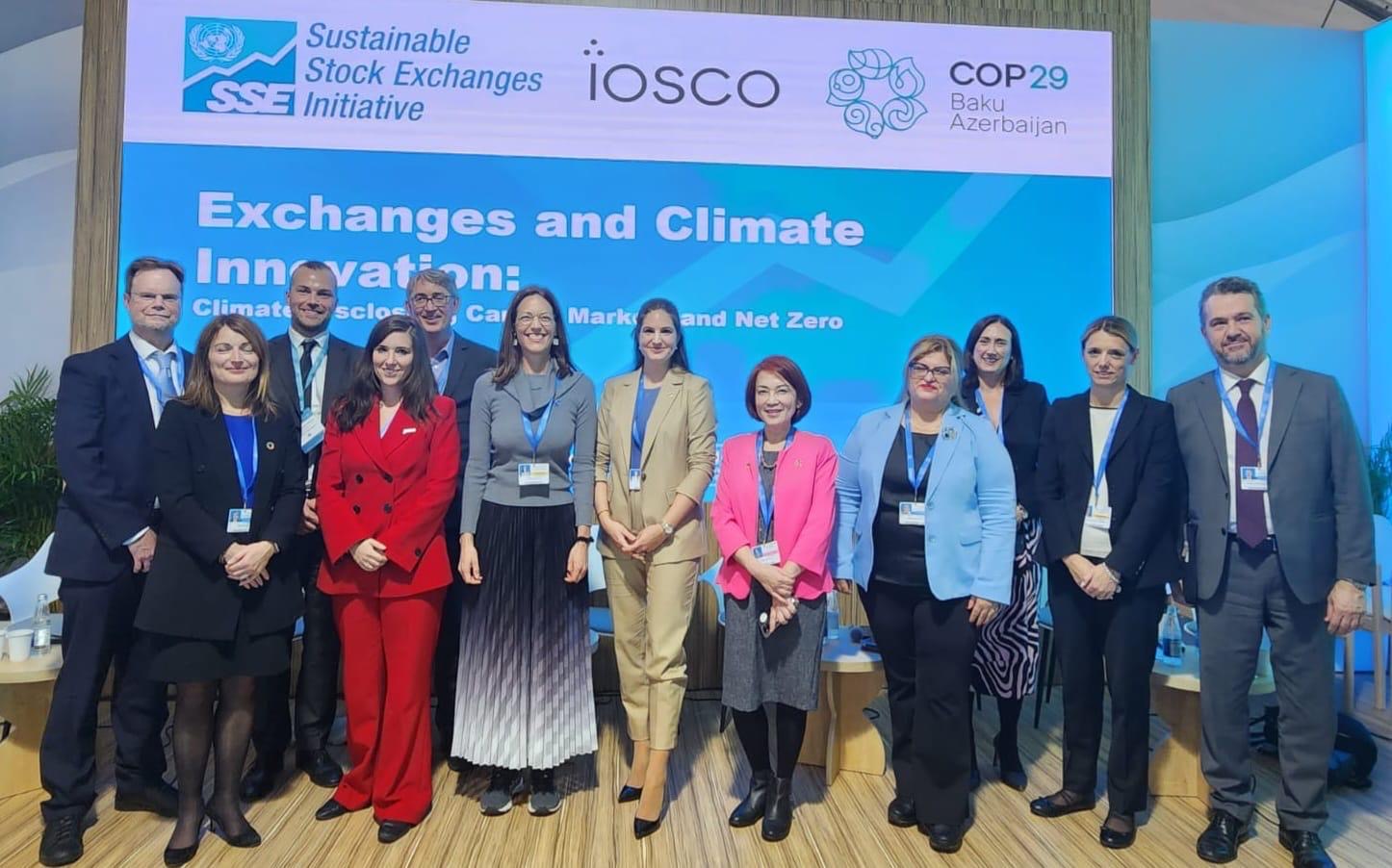IFC Beyond the Balance Sheet Program Presented at COP 29 session on Climate Disclosure, Carbon Markets and Net Zero

Baku, Azerbaijan, November 14, 2024. During Finance Day of COP29, the United Nations Sustainable Stock Exchanges convened a diverse panel of experts to explore the role of stock exchanges in supporting the net-zero transition through climate disclosure and innovative financial instruments such as green bonds, sustainability-linked bonds, and carbon trading platforms.
Exchanges and climate innovation: climate disclosure, carbon markets and net zero
Speakers from the following organizations participated in the discussion: Bursa Malaysia, Chicago Mercantile Exchange, the Global Reporting Initiative, International Finance Corporation, International Sustainability Standards Board, IOSCO, London Stock Exchange, Principles for Responsible Investment), S&P Global and Spanish Financial Markets Authority. IFC was represented by IFC Beyond the Balance Sheet Program Lead, Ralitza Germanova.
The session highlighted core themes of Consistency, Transparency, Credibility, and Trust and the discussions revolved around establishing comparable and globally accepted sustainability metrics, conducting climate transition assessments, and ensuring trust in the foundational data and analytics driving due diligence processes.
As a result of strategic collaborations, over 12,000 participants globally have been trained on the new IFRS sustainability disclosure standards via the International Sustainability Standards Board (ISSB), United Nations Sustainable Stock Exchanges Initiative, and IFC's Beyond the Balance Sheet Program training program one year after its launch, comprising 70% of the global capacity building on the new standards.
This collaborative approach is crucial to ensure consistent guidance, knowledge sharing, and effective implementation. In each session, experts respond to more than 80 questions clarifying the role of the board and management (CLO, CEO, CFO, CTO), measuring KPIs, setting up strategic objectives.
Exchanges are developing specialized market segments and products to facilitate the flow of capital towards climate-friendly projects and solutions often with World Bank and IFC support in emerging markets and developing economies. Exchanges are also collaborating with standard-setters to align their disclosure requirements. More than 30 jurisdictions are in process of adopting the ISSB Standards. Through its regional advisory programs, IFC supports regulators and exchanges in aligning their regulations with the new ISSB standards. Moving forward, IFC intends to develop capacity building program for board directors as they represent more than 30% of the participants of the Applying the ISSB Standards training program.
“Emerging markets face significant climate risks and financing gaps that threaten their stability and development. Through the IFC's Beyond the Balance Sheet program, we aim to enhance climate disclosure and promote sustainability in these markets. By aligning climate-related disclosures with global standards and offering tailored guidance, we empower issuers to meet investor demand for reliable ESG data. Together with strategic partners, such as the IFRS Foundation and the UN Sustainable Stock Exchanges Initiative, we strive to create sustainable and climate-resilient futures in emerging markets.” Ralitza Germanova, Corporate Governance Officer, Lead, Beyond the Balance Sheet Program, International Finance Corporation.